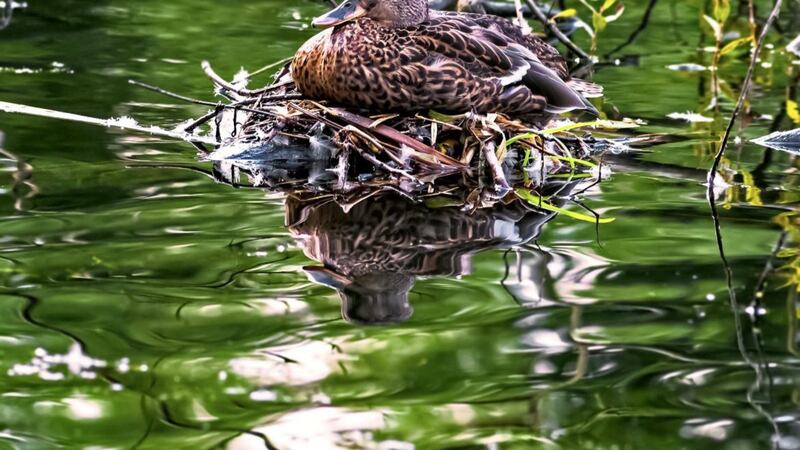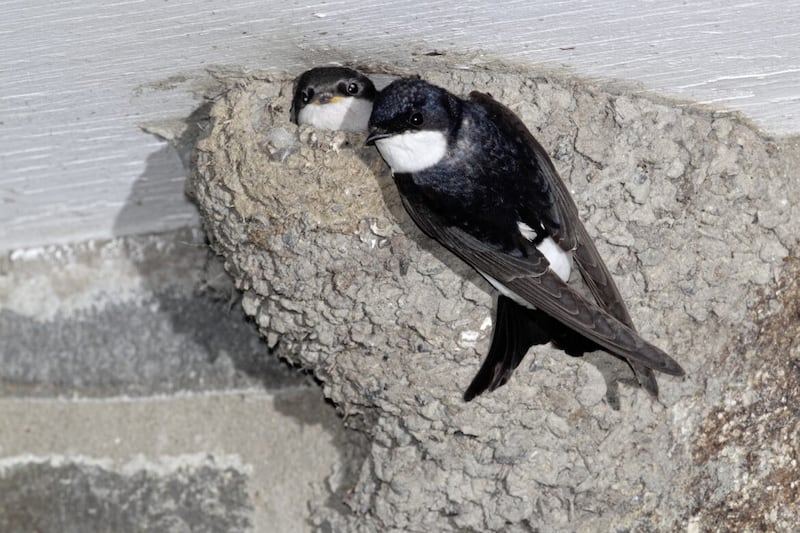I HEARD the joyful call of the chiffchaff on the morning of the spring equinox, celebrating its successful return to our shores.
I had been waiting patiently for its arrival to confirm the coming of spring and to remind me the cogs of our Earth are still working, as they have done for millennia. In gratitude for both, I wished the bird luck in finding a mate and safe nest site for the season ahead.
Thinking about the business of nest building and chick rearing, transported me back to a story from Michael McLaverty, The Wild Duck’s Nest, set on Rathlin Island, where the Irish author spent some of his youth. His story focuses on the guilt experienced by a young boy after handling a solitary egg from a wild duck’s nest.
It opens on an evening in late March as the sun sets, when the boy, Colm, out to fetch his cow notices a wild duck as it "flew low over his head, its neck astrain... It circled the lake twice, thrice, coming lower each time and then with a nervous flapping of wings it skidded along the surface, its legs breaking the water into a series of glittering arcs".
The bird quietly disappeared at the edge of the lake behind the shelter of reeds, as "the boy with dilated eyes watched it eagerly". Keen to see more, Colm’s natural boyish curiosity led him along the bank to where he last saw the bird. Wading through shallow water towards a small islet shielded by grasses, he slipped, causing a splash, spooking the bird which "arose with a squawk and whirred away over the cliffs".
More curious than ever, he searched until he found the nest behind some long grass, before lifting the egg, "smooth and green as the sky". Instantly, he realised he shouldn’t have touched it and feared the bird would forsake it. McLaverty writes, "A vague sadness stole over him and he felt he had sinned."
I recount this story because we all have a sense, from childhood, of the sanctity of a bird’s nest and how serious it is to interfere with it in any way; hence the young boy’s anguish.
It also reveals the feeling of exhilaration at finding a wild bird’s nest for the first time and seeing a bird sitting tight on eggs. For me it was a hen blackbird, many springs ago, sunken into her nest, motionless staring at me through thorny branches as I peered ever closer.
Even then I knew to withdraw in time but, like Colm, I wanted to get closer and see the eggs if possible. Such is the power of curiosity.
In a world dominated and consumed by technology, perhaps the urge to explore the natural world with such youthful enthusiasm is needed more than ever.
Colm’s sense of torment and guilt was exacerbated the following day at school when, after revealing to his friend Paddy he had held the egg, he was told, "She’ll forsake it! She’ll forsake it!"
After school, he hurried to the lakeside as "his heart hammered wildly in his ears".
Relieved, he discovered she was still on the nest, but as he turned to leave, the duck, "rose heavily, and flew off towards the sea... A guilty silence enveloped the boy". He decided to have one more look. He gazed over the grasses and "There in the nest lay two eggs".
Maybe, during the busy weeks ahead for our wildlife, we could benefit from exercising our senses and some of Colm’s childhood curiosity for things of the natural world.








